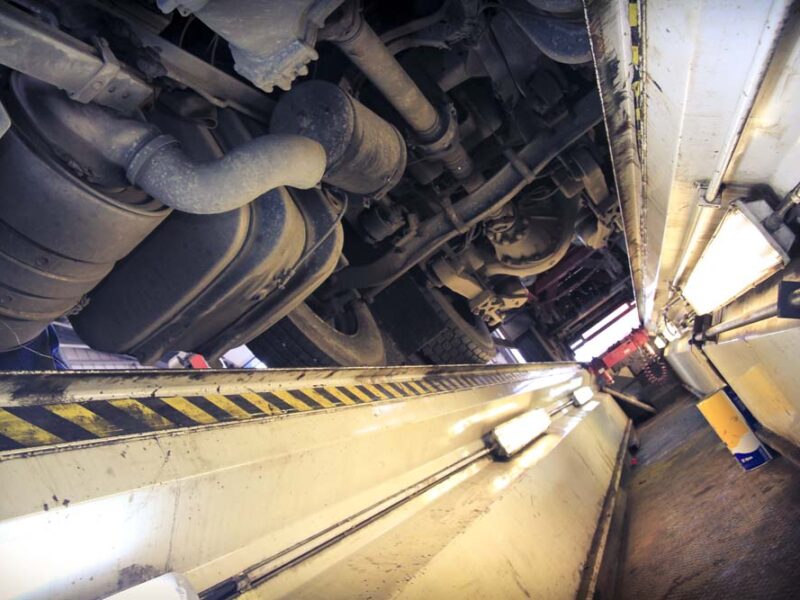The case of Transport for London (TfL) vs. Commercial Plant Services Ltd & Others 2023 ("Commercial Plant") recently hit the headlines in the national papers as the London Tribunal ruled that TfL "broke the law" when it used CCTV systems rather than Civil Enforcement Officers (CEOs) to issue Penalty Charge Notices (PCNs) to drivers.
Laws limiting the use of CCTV to issue fines were introduced back in 2015 when Government ministers in the Department for Transport called the practice an "overzealous enforcement by local authorities". Now with the case of TfL vs. Commercial Plant, motorists issued with PCNs using CCTV rather than a CEO may be able to appeal any parking fines issued in this manner and get the fine rescinded if successful.
What Were TfL Doing?
In London and further afield there are 'red routes' which are routes where red non-stopping lines are used to prevent vehicles from parking in certain areas where to do so would cause congestion. If a vehicle has parked on a red route then the owner could be liable to receive a PCN.
PCNs issued for flouting this rule should be issued by CEOs at the time of the offence and this can, on occasion, offer the driver an opportunity to explain why they are stopped there. PCNs issued later using CCTV footage as evidence deny the "accused" the ability to obtain necessary evidence to be able to prove that what they were doing was allowable, such as loading/unloading. This is especially important in the case of commercial vehicles that my have stopped for a legitimate purpose.
TfL had been issuing parking tickets to individuals by post relying upon the use of CCTV systems to identify the vehicles rather than through CEOs, in contravention of Regulations 9 - 11 of the Civil Enforcement of Road Traffic Contraventions (Approved Devices, Charging Guidelines and General Provisions) (England) Regulations 2022 ("the 2022 Regulations").
The Landmark Case
The Commercial Plant case emerged from numerous appeals made in relation to outstanding parking fines issued for unlawful parking along these 'red routes'. The company's main appeal point was that issuing fines by post using CCTV footage should be considered a 'procedural impropriety' and should be made illegal.
The case put forward by Commercial Plant & Others (the appellants) set out to define the statutory principals and the correct interpretation of these Regulations 9 - 11 of the 2022 Regulations and argued that appropriate signage was mandatory. TfL's representatives argued that the 2022 Regulations allowed the issuing of PCNs using CCTV on red routes rather than requiring CEOs. Their key point was that because a red route could be any road that had single or double red lines and no signage stating the hourly restrictions, reliance on CCTV was permitted.
The Tribunal concluded that the correct interpretation of Regulations 9 - 11 of the 2022 Regulation was the one presented by the appellants stating; "it would be counterproductive to have a law in place that would not allow motorists the ability to provide evidence to disprove the offence". Using CCTV in this way would mean that motorists with genuine reasons to park on a 'red route' would not have the same opportunity to provide evidence as they would if a CEO had personally addressed them at the time of the "offence".
An example was given of a person loading or unloading goods for a commercial store; the CCTV would capture footage of the vehicle parked. A CEO on the other hand would be able to ask the driver why they are parked and verify with the commercial store that goods were being delivered/loaded and therefore avoid the issuing of a PCN.
It remains the case that the act itself of parking on a red route, unless for an allowable reason such as loading/unloading where there is no alternative place to do so, is still not allowed and would result in a PCN, but if that PCN is issued by post using CCTV footage, the driver will be able to appeal it and may not have to pay a penalty.
Conclusion
A TfL spokesperson speaking after the ruling is on record as saying "we are committed to keeping London moving safely and efficiently and compliance on the Transport for London road network is essential to achieving these aims. Enforcement by our compliance officers using CCTV cameras is an important part of tackling this and we are exploring next steps...".
The issue for commercial vehicle operators is that challenging a succession of PCNs can quickly become non-commercial: It is sometimes cheaper just to pay rather than challenge every PCN. This case may help reduce the number of PCNs that are issued by TfL and if that is the result of this case, then there is much to be welcomed.
If you have any questions regarding issued PCNs or about your transport operation generally, then please click here to send an email, or call us directly on 01279 818280. We are here to help.

More News and Insight

Social Media – Have you Thought about your Employees’ Use?
Social Media is all encompassing in the modern world, but although it brings many positives, it can place employers in vulnerable positions if their employees’ use is not carefully defined…

Changes to the Clandestine Entrant Civil Penalty Scheme means a Stitch in Time Really Does Save Nine!
The Clandestine Entrant Civil Penalty Scheme has been in place for over 20 years. It is designed to complement law enforcement activity against criminals who smuggle people into the UK illegally as well as deter those who decide to try to enter the country without permission…

Driving in the UK? Read about the latest Rule Changes in 2024
Earlier this year various new driving laws were introduced, impacting both standard road users as well as HGV and PSV road users across England, Wales & Scotland. If you are driving in the UK, especially if you are a commercial driver, then you should ensure that you are aware of these amendments and new rules…

Self-Driving Cars on UK Roads to be Reality by 2026
It seems that one of the first areas that will be breaking the ground in the AI revolution into most people’s everyday lives will be Self-Driving cars! Of course we have heard all this before, and more than once!

Are You Taking your Responsibilities to Maintain your Vehicles Seriously?
Running a haulage business is not an easy undertaking. There are a multitude of decisions to be made on a daily basis before any driver actually gets behind the wheel and delivers the goods (or passengers!).

Update to the Guide to Registering & Operating Local Bus Services in England & Wales
The Senior Traffic Commissioner’s guide to registering and operating local bus services in England and Wales is intended to help operators of local bus services understand the requirements for registering a service.

Changes to the HGV & PSV Test Regime for Earned Recognition Operators
In March 2021 the Government began a review into the processes for commercial vehicle testing to look at ways it could improve the regime for operators whilst still maintaining high safety standards for any vehicle used commercially on the UK’s roads.

Employment Law Updates for 2024
The Government has confirmed several legislative employment law changes to be implemented 2024, which aim to bring about a “fairer workplace for employees”.

Campaign to Bar Schools from using Section 19 Permits
In March 2024 a campaign was started to end the operation of minibuses by schools and colleges under Section 19 permits.

Moving to a Digital First Approach in Heavy Vehicle Testing
The DVSA has published an update to their digital transformation project for heavy vehicle testing. The update is for the new Manage Your Vehicle Testing (MyVT) digital service across vehicle testing.

Traffic Commissioner Highlights Abuse of Section-19 Permits
In a Section 19 Public Inquiry hearing heard last year (2023) the Traffic Commissioner highlighted again the importance of permit operators ensuring that their vehicles allow passengers and other road users to be safe.

Enero Logistics Ltd – the Law for Operators on Agency Drivers
At one time or another, many transport companies need to rely on the services provided by agency drivers, to best cope with sudden fluctuations in demand or to fill driver shortages. This allows for the undisrupted continuation of services by these organisations.
